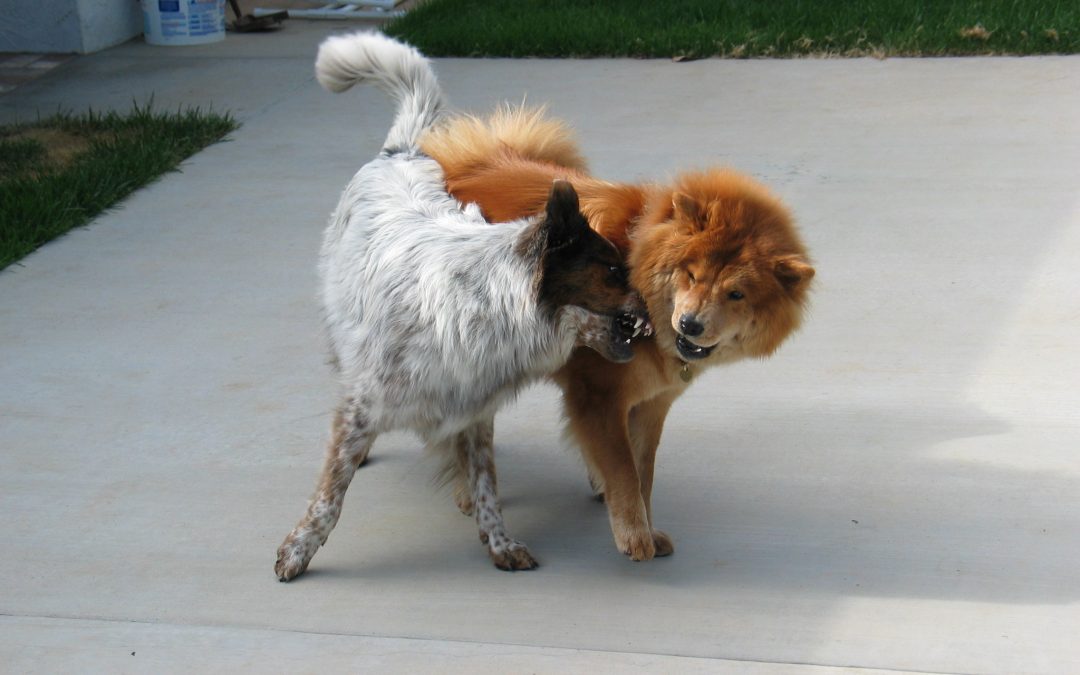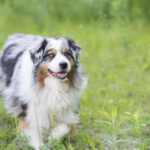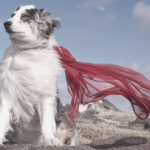One of the most glorious times in a dog trainer’s life is that moment when we gently (if metaphorically) grasp our client’s hands and escort them and their dog into a play session. This is especially the case if the client is a bit wary or unsure—they believe in us, sure, but also trust their gut: my dog is a scary beast, isn’t he? So their flat-out joy at seeing their dog play gleefully warms the cockles of our hearts.
Often this scenario comes up if our client’s dogs have had a scuffle with another dog at some point in the past. A cautious dog owner might, from that alarming moment on, sequester their dogs: leash walks only, no more play dates, or in multi-dog homes, they might even start a program of crate-and-rotate or otherwise keep dogs separated at all times. In some cases, owners find leash reactivity alone to be worrisome enough to decide that they can’t chance dog play—a sad scenario indeed, as many leash reactive dogs are frantically pro-social with other dogs and would in fact be improved by the chance to decrease their social motivation through dog play.
Normalizing Normal Behavior
To trainers familiar with normal and healthy dog play (which occasionally includes a minor squabble or some intense moments), it can feel a bit like we are spinning our wheels when we allow the minutes to tick by in a consult, normalizing what is really just normal dog behaviour. However, it is simply not time wasted: we must be thorough and caring to really help owners move past their feelings of alarm and fear, no matter what else is on the training to-do list. A non-injurious scuffle or one resulting in a few minor facial dings is not a walk in the park for a dog trainer but certainly doesn’t make us throw in the towel on all future dog interactions. For dog owners, though—who do not understand ritualization and acquired bite inhibition—this stuff is really scary. A few comforting words and a “get over it” attitude will do no one any favours.
In fact, spending time with our clients normalizing non-injurious interactions can pay real dividends. First, we are getting more dogs to play. Play with conspecifics is a great way to provide exercise and enrichment and a tremendous welfare boost for members of a social species like dogs. Second, our clients get access to an easy and enjoyable way to tire out their dogs. Play time is a quick energy burner for dogs and an enjoyable social occasion for humans, if orchestrated well. Clients with active dogs especially appreciate the big payoffs and small investment from having play available to them as an exercise option. And third, our businesses will grow with the ever-elusive word of mouth. Many people find watching dog play to be exquisitely enjoyable, and if we open the gate to dog play, it keeps them talking about our services.
Time Well Spent
If you have clients with dogs who are good candidates for dog play and who are pushing back due to wariness from an alarming (to them) but safe and normal encounter, consider the time you spend normalizing and myth-busting to be time well spent. On one hand, dog play may form a key component to a behaviour modification program. For certain diagnoses like leash reactivity in a friendly but barrier frustrated dog, dog-dog play can be used within your behaviour modification protocol for saturation (getting the dog bored of dogs), motivation (using play as a reinforcing consequence) and distraction (for training very solid alternate behaviours). On the other hand, even in cases where play won’t be of direct use for your training plan, dog play is of value for the exercise and enrichment it provides.
For example, owners who have experienced a minor scuffle might easily misinterpret the seriousness of it and end up preventing their young, active, and bored dog from playing. “He would have killed the other dog if I hadn’t intervened” is a common theme, despite the strong likelihood that their dog has a species-normal and safe way of settling minor disagreements. It makes good sense to take the time to discuss acquired bite inhibition, which is the ability of dogs to bite with attenuated, non-maiming force in social interactions. Talk about how the dogs, if they had intended on hurting each other, could have done so immediately. And recognize that these owners are quite legitimately scared, so need a gentle approach. You may have to repeat the message often, and in many different ways, for the owner to get some clarity about their dog’s behaviour and needs.
Getting previously-sequestered dogs set up with playmates is good for your client, good for your business, and good for the dog. And all that hand-holding has a delightful bit of reinforcement for you, too: a video card full of play between dogs who (without your intervention), simply wouldn’t have the chance.
Joya, sequestered after a minor squabble, was able to shine as a dog-friendly dog after some work by Academy graduate Sabrina Mignacca of Ivy League Dogs. Anna, also sequestered after a squabble, took it upon herself to reintroduce play in her life after two years away from it. Anna’s newfound sociability was fostered by Academy graduate Lisa Skavienski of Dog, Educated.











